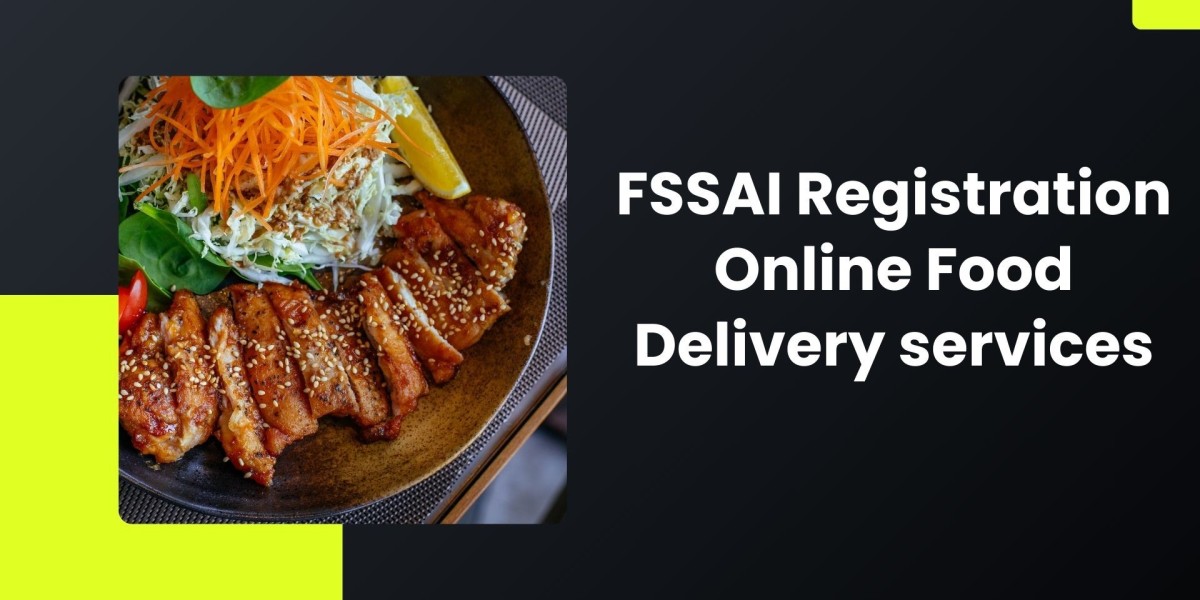With the swift expansion of digital food ordering services like Zomato, Swiggy, UberEats (now merged with Zomato), and Dunzo, the online food delivery industry in India has emerged as a thriving domain. However, to safeguard food hygiene and protect public health, all food business operators (FBOs), including online food delivery platforms, are required to adhere to the regulations established by the Food Safety and Standards Authority of India (FSSAI).
What is FSSAI registration?
FSSAI registration is compulsory for anyone engaged in the food industry in India. It is authorised by FSSAI, the Food Safety and Standards Authority of India (FSSAI). A compliance authority under the control of the Ministry of Health and Family Welfare. This registration confirms that a food business meets the guidelines and norms ensuring the safety and quality of food items.
Types of FSSAI registration Online Food Delivery services:
- FSSAI Basic Registration (FSSAI License Type A): Applicable for small-scale food businesses, including petty retailers, small-scale manufacturers, and food processors whose annual turnover does not exceed ₹12 lakhs. Basic registration is suitable for businesses with limited operations and low turnover.
- FSSAI State License (FSSAI License Type B): Applicable for medium-sized food businesses, including manufacturers, storage units, transporters, retailers, marketers, and distributors. Required for businesses with an annual turnover between ₹12 lakhs and ₹20 crores.
- FSSAI Central License (FSSAI License Type C): Applicable for large-scale food businesses with operations across multiple states or with an annual turnover exceeding ₹20 crores.
Process of FSSAI registration Online Food Delivery services:
Step-1: Visit the official portal of FSSAI.
Step 2: Select the option of type of registration.
Step 3: Fill the application form like:
- Name of business
- Name of applicant.
- Email ID and mobile number.
- Address of the business.
- Date of incorporation.
- Kind of business.
- Select the registration type.
- Registration tenure.
- State and district, pincode.
- Additional details about business.
- Business proof.
Step 4: Enter the verification code.
Step 5: submit the application.
Required documents for the FSSAI registration Online Food Delivery services:
- Identity proof of the applicant.
- Provide proof of the business premises.
- Proof of the business constitution.
- Photograph of the applicant.
- Food safety plan.
- List of food products.
- NOC.
- Import and export code
Who Is Required to Obtain an FSSAI License in the Online Food Services?
- Cloud Kitchens.
- Home-Based Food Sellers & Tiffin Services.
- Restaurants Registered on Online Aggregators.
- Food Aggregators & Delivery Platforms.
- Bakery and Dessert Sellers (Online).
- Packaged Food Seller.
- Online Grocery Delivery Services.
- Food Transport and Logistics Partners.
Important FSSAI Rules for Online Food Services:
FSSAI Registration for Online Food Businesses
All entities involved in online food sales must acquire an FSSAI license. The application process comprises:
- Business owners are required to provide information on the types of food along with their sources of origin.
- Submitting food safety compliance records.
Following Food Safety Protocols
Online food enterprises are required to guarantee:
- Maintaining cleanliness during handling, storage, and packaging of food.
- Accurate labeling including ingredients, expiration date, and nutrition facts.
- Conformity with the Food Safety and Standards Act of 2006.
Rules of FSSAI Labeling and Packaging:
- The FSSAI symbol and license ID must be made visible.
- Ingredient composition, allergen alerts, nutrition facts, and manufacturing particulars should be transparently indicated.
- The expiration date and batch code must be clearly indicated.
Cloud Kitchen Legal Compliance Guidelines
- Delivery-only kitchens with no dine-in services must.
- Receive an FSSAI license before beginning food service operations.
- Follow hygiene protocols and appropriate storage procedures for food.
- Execute recurring audits and food safety inspections.
Food Safety Guidelines for Aggregator Services Like Swiggy and Zomato
- Verify that every registered eatery and food supplier holds a valid FSSAI license.
- Publish the FSSAI license number of partner restaurants on their service platforms.
- Implement a dependable system for addressing food safety complaints.
FSSAI Conformity Checklist for Online Food Platforms
- Secure the relevant FSSAI license (Basic, State, or Central).
- Maintain adequate hygiene and food safety standards during food preparation and storage.
- Comply with packaging and labeling requirements for all online food transactions.
- Showcase the FSSAI license number on websites, packaging materials, and billing documents.
- Ensure a well-managed supply chain with strict temperature regulation for perishable items.
- Perform routine food safety inspections to prevent penalties for non-compliance
Conclusion:
FSSAI compliance is crucial for enterprises operating in the fast-expanding online food market.Every business owner engaged in managing a cloud kitchen, a home-based food venture, or collaborating with food aggregators must adhere to FSSAI guidelines. This not only safeguards consumers but also builds credibility and helps prevent legal issues.



